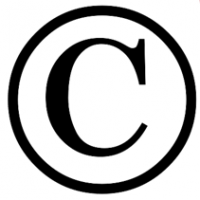Is It Fair to Make APIs Copyrightable?

Google recently lost a copyright appeal against Oracle. This ruling allows Oracle to copyright application programming interfaces (APIs) for Java. The case will be sent back to the trial court, which will help decide whether Google used Java APIs fairly. This ruling has a far-reaching impact.
For starters, APIs let programs interact with each other—they exchange data and get data in return. Google had used Java APIs to design the Android operating system. Earlier in 2012, a federal judge passed the judgment that Oracle could not claim copyright protection on parts of Java, but this was reversed in the recent ruling.
The reason a good part of the software industry is worried about this ruling could be tracked back to the role APIs have played in the past. As stated in Fred Vogelstein's book Dogfight: How Apple and Google Went to War and Started a Revolution:
A huge amount of analysis has been done on how Microsoft built its Windows monopoly in the PC business; if you get enough people using your technology platform, eventually it creates a vortex that forces everyone to use it.
APIs helped build an ecosystem that extended Windows OS with the help of developer-created applications. These applications helped Windows become more useful for customers. During the early days, companies like Compaq reimplemented IBM's BIOS software that made PC clones possible.
As the Electronic Frontier Foundation tried to explain to the court in the Oracle-Google case:
The freedom to re-implement and extend existing APIs has been the key to competition and progress in both hardware and software development. It made possible the emergence and success of many robust industries we now take for granted—for mainframes, PCs, workstations/servers …
If the APIs are allowed to be copyrighted, these are the possible results:
- It could potentially slow down creative programmers who thus far have been leveraging APIs without having to think about risking a lawsuit.
- It may slow down the progress of the computing industry—such protection may prevent platforms from being extended because programmers might need a license to contribute.
- End users will have fewer choices and will likely be more tied to a single application, thereby increasing monopoly threats.
Given that the free use of APIs has contributed so much to the development of the modern computing industry, the populist view is that APIs shouldn't be copyrighted. The court's view is obviously based on arguments related to legal boundaries of the subject.
As described in a Forbes article, copyright law protects “original works of authorship fixed in any tangible medium of expression." On the surface, this definition means that some aspects of source code might be copyrighted. However, there is a good deal of complexity and subjectivity in the way this case could be interpreted, which is probably why there were two opposite judgments within the span of two years.
Whether this copyright war ends up being talked about as much as the Samsung-Apple patent wars remains to be seen. But whatever the case, the programming artifacts certainly need the right balance of flexibility and creative protection.
Do you agree?

